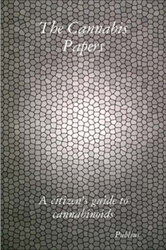
Chicago, IL (PRWEB) September 30, 2012
As the devastating consequences of drought throughout the US become more apparent, authors of The Cannabis Papers: A Citizen’s Guide to Cannabinoids (2011), note the drought of common sense regarding hemp economics in the US – though not in China.
“Hempseed provides a perfect balance of fatty omega acids, as well as protein and other benefits,” said Steve Young, who worked on The Cannabis Papers as well as produced Government Grown: How Polo Illinois Helped Win The War (2009), a documentary on US hemp production during World War II. “Unfortunately, the federal government has been unwavering in its commitment to keep American hemp away from American consumers for several decades.”
Known throughout history as a source of rope, textiles and medicine, hemp also offers great nutritional value for humans and animals alike. The cultivation of hemp is banned throughout the United States.
Added Young: “Hemp prohibition is utterly insane and shows how out of step we are with the rest of the world. Many people know American farmers cannot grow hemp; hardly anyone knows China leads the world in hemp industries – and it’s a growing industry.”
Notably, a 2012 investor’s report was optimistic regarding investment in China’s hemp economies: “No one in America makes the argument that China – and not the US – should lead the way in developing hemp industries; yet the investor’s report is clear – China is developing something new – call it “Hemponomics” – that’s what the report suggests.”
Young noted allowing investors to put their money into US hemp farms would be beneficial for the American economy.
“During this year’s drought, we could have been growing hemp in places where other crops couldn’t grow. The time to pretend there is anything good from hemp prohibition has ended; maintaining that delusion is creating an economic windfall for China, and a reciprocal economic loss for America.”

